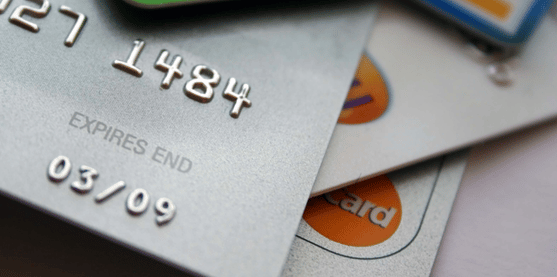
Everyone knows that detecting fraud plays a pretty substantial role in affiliate marketing. Hundreds of tools have been created to prevent and detect fraud like FraudLogix, CPA Detective, AdSafe, Brand Verity, and ScrubKit, but today I want to focus on a particular type of fraud that impacts merchants by increasing their charge backs as well as impacts a regular Joe minding his own business – Stolen Credit Cards.
What do you mean affiliates steal credit cards?
It’s not like stolen credit cards are only a problem in affiliate marketing, any eCommerce store out there will tell you they have issues with stolen cards from time to time. However, affiliate fraudsters are looking for ways to generate sales by any means necessary so they get paid for a conversion. Sometimes, this means stealing data in order to emulate legitimate sales.
There are a three primary ways card data can be stolen:
1. Physical Theft of a Card Physical theft of a card is self-explanatory – a card holder loses a card, or is pick pocketed – if an affiliate marketer is able to get his/her hands on this information they can make additional sales.
2. Skimming Card Information Skimming can be everything from using receipts to find credit card information to stealing the information in the process of making a transaction. For example, when a cab driver physically copies your credit card, he/she could potentially take that info and sell it to someone else. However, all a fraudulent person really needs is the name and credit card number. Usually they can look up the rest of a users information online to find the right phone number, address, and zipcode.
3. Counterfeiting Credit Card Information Counterfeiting information is the process of using the card’s magnetic strip to draw the information (“faking” a transaction). All the affiliate marketer has to do is use this info, by either purchasing it or retrieving it themselves, to make false sales.
Effect On Merchants
The effect on merchants is essentially a double whammy – not only are they paying commission to the affiliates who stole the information, but they have to pay a chargeback fee to the payment processor. In other words, once the card holder discovers the purchase has been made fraudulently, they will contact the payment processor and a chargeback will ensue. This can have drastic effects on the merchant if the number of fraudulent affiliates is high – the more charge backs a merchant endures, the more a merchant’s reputation is affected. In an absolute worst-case scenario, the payment processor will cancel its relationship with a merchant if the chargeback threshold is high.
Preventing Stolen Credit Cards
Work with the Good Guys Start simple by finding affiliates through legitimate sources. Only do business with legitimate affiliates who come through trusted sources and make sure you verify affiliate signups. Find out where their traffic is coming from, make sure they’re a real person, and don’t pay out until you’ve checked the quality of users they’ve provided.
Beware of Affiliates Wanting Fast Payments It is pretty common for fraudulent affiliates to seek a payout as quickly as possible so that they can get paid before you are able to figure out they were using stolen credit cards. Allowing them to disappear into oblivion whenever they need to.
Call the Customers Coming from New Affiliates There is no better sure fire test for making sure an affiliate isn’t stealing credit cards than getting customers on the phone and verifying that they made a purchase. Though this is not very preferable, it is certainly a catch all and a good way to test traffic from a new affiliate early on.
Mismatched Customer Information Your credit card processor doesn’t usually verify all of the information submitted for the card. Often times the transaction will still go through even if the expiration date or zip-code is incorrect. Make sure you’re using AVS, CVM, and consider using payer authentication programs.
Check for Proxies Investigate any affiliate leads that might have involved an anonymous and open proxy IP address as an intermediary to disguise the location of a user.
IP of Click Doesn’t Match IP of Conversion This is a simple check that will quickly show you if transactions are being made from a single location, and even if an affiliate is using proxies, they are not usually making sure the IP matches from the user’s click to the conversion page.
Time to Conversion is Low If users are converting really quickly, for example it only takes them a few seconds form click to conversion, it is obviously very likely that it is not a real user and the affiliate is using some sort of script to automatically generate conversions. Learn more about conversion times.
What To Do About a Stolen Card Transaction
First, you need to block the affiliate account. Your affiliate tracking software should make this process very simple. This “block” mechanism should not only stop giving them credit for leads, but it should also kill their affiliate link entirely so that no traffic will continue to flow. Next, you need to contact your payment processor or registration service, the card issuing bank, and the individual customers. If customers are already issuing charge backs, try to get back to them as soon as possible, work with your payment processor and see if they will remove it based on fraud.
Preventing against stolen cards is really one of the most important ways to cut back on affiliate fraud, and really every business should be aware of how to deal with stolen cards in their online business. Remember, the best part about running your own affiliate program is that you choose who you get to do business with. Find affiliates you can trust.
What other tips do you have about preventing affiliates from using stolen cards?
Author
A digital marketer by background, Peter is the former CEO of TUNE, the enterprise platform for partner marketing. In 2018, he sold TUNE’s mobile measurement product to Branch, unifying measurement and user experience. He led TUNE’s efforts to bring better management technology and automation to marketing partnerships, across affiliates, influencers, networks, and business development relationships. Follow @peterhamilton




Great article. Thank you Hasoffers 🙂
Awesome article. Thank you Hasoffers.
All the method you metioned is useful for detecting fraud lead! thanks
[…] – An unusually high amount of affiliate based stolen credit card transactions […]